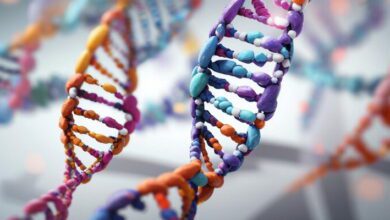Aquatic Biology MCQs with Answers

Welcome to the Aquatic Biology MCQs with Answers. In this post, we have shared Aquatic Biology Online Test for different competitive exams. Find practice Aquatic Biology Practice Questions with answers in Biology Tests exams here. Each question offers a chance to enhance your knowledge regarding Aquatic Biology.
| It is, therefore, the study of organisms and their ecosystems in water ranging from fresh systems to marine systems. Aquatic biology thus has a pivotal role in understanding the complex interactions within aquatic habitats besides the impact of human activities in these ecosystems. Marine biology, a subset of aquatic biology, is specialized toward studying life in the marine environments in detail, from microscopic plankton to the giant whales. Marine biologists study the behavior, physiology, and ecology of marine organisms in order to contribute knowledge about ocean health and biodiversity. Aquaculture biologists generally talk about the culture of aquatic animals for food, restoration, and preservation. Their main concern is to develop sustainable fishing farming methods with fish, shellfish, as well as other marine species by addressing concerns like disease management, breeding, and effects on the environment. Aquatic biology and fisheries have a pivotal place in fish population management and conservation and all that facilitates proper aquatic resource use. This field contains the overall aspects of biology, ecology, and resource management in ensuring the sustainable use of aquatic resources. The fishes’ population dynamics, habitat requirements, as well as the effects of fishing practices, are studied by fisheries biologists in formulating regulations and conservation strategies. |
Aquatic Biology Online Quiz
By presenting 3 options to choose from, Aquatic Biology Quiz which cover a wide range of topics and levels of difficulty, making them adaptable to various learning objectives and preferences. You will have to read all the given answers of Aquatic Biology Questions and Answers and click over the correct answer.
- Test Name: Aquatic Biology MCQ Quiz Practice
- Type: Quiz Test
- Total Questions: 40
- Total Marks: 40
- Time: 40 minutes
Note: Answer of the questions will change randomly each time you start the test. Practice each quiz test at least 3 times if you want to secure High Marks. Once you are finished, click the View Results button. If any answer looks wrong to you in Quizzes. simply click on question and comment below that question. so that we can update the answer in the quiz section.
Download Certificate of Quiz Aquatic Biology
On the end of Quiz, you can download the certificate of the quiz if you got more than 70% marks. Add a certificate to your job application or social profile (like LinkedIn) and get more job offers.
If you are interested to enhance your knowledge regarding English, Physics, Chemistry, and Computer please click on the link of each category, you will be redirected to dedicated website for each category.




